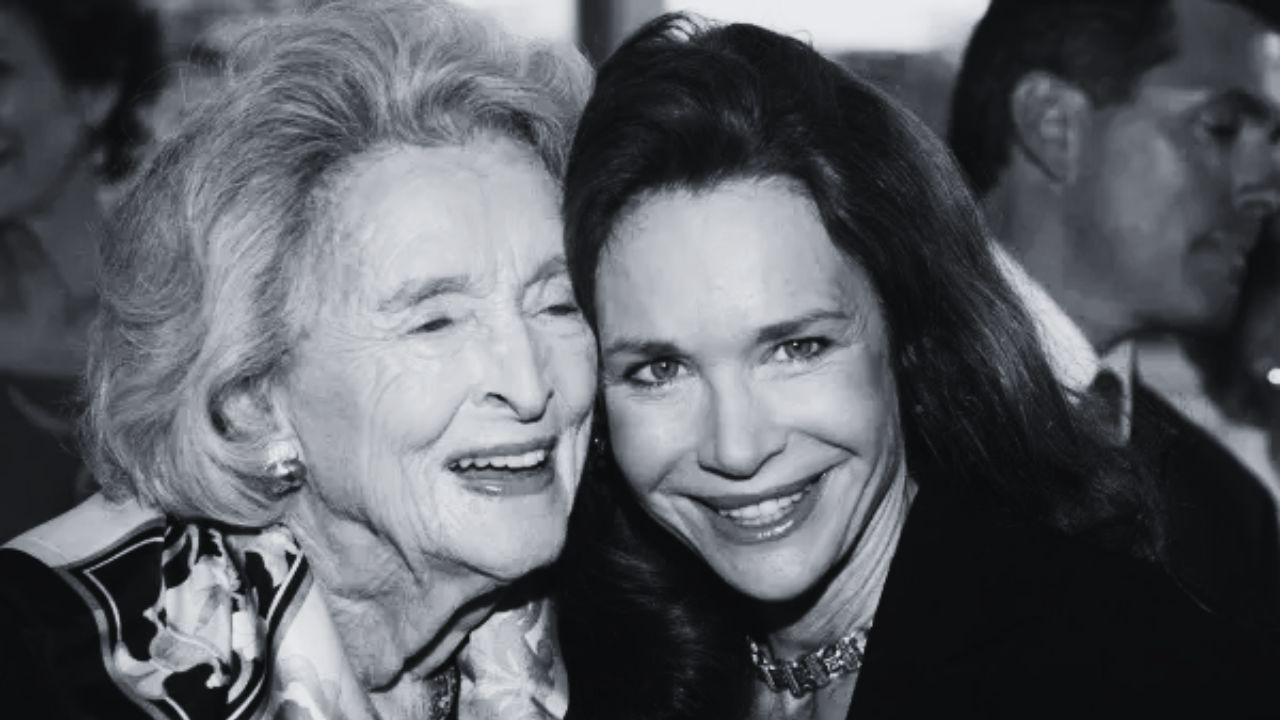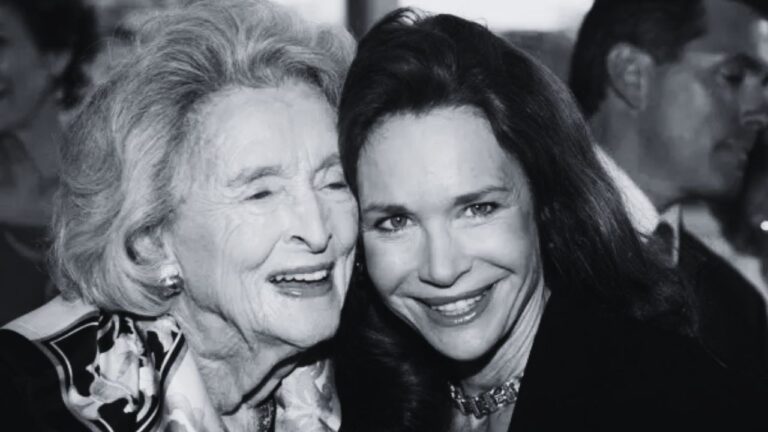When we talk about influential individuals in the classical music industry, the name Eleanora Hope often comes up. Often referred to as the ‘maestro behind the maestros’, Hope has left an indelible mark on the world of classical music. With an illustrious career spanning over four decades, she has played an instrumental role in shaping the careers of numerous artists and orchestras.
Early Life and Education
Eleanora Hope’s journey began in South Africa where she was born and raised. Her academic prowess was evident from an early age, as she pursued studies in languages and business management. This academic foundation, coupled with her passion for music, laid the groundwork for her future career in the music industry.
Hope’s interest in music was not just limited to the academical realm. She was known for her keen ear for music and her understanding of the complexities of the music industry, which later proved instrumental in her career.
Initial Career Steps and Influences
After finishing her studies, Eleanora Hope embarked on her professional journey in 1975. Her first significant role was as a personal assistant to the globally acclaimed violinist Yehudi Menuhin. This was not just a job for Hope; it was a learning experience that shaped her understanding of the industry.
Working closely with Menuhin, Hope was exposed to the inner workings of the music industry. She learned the ropes of artist management, festival administration, and much more. This hands-on experience under Menuhin’s guidance was a critical stepping stone in Hope’s career path.

Beyond her role as a personal assistant, Hope soon took over the general management of Yehudi Menuhin. This expanded her responsibilities and gave her the opportunity to showcase her abilities in a broader context. It was during this time that Hope began to establish herself as a notable figure in the classical music industry.
Hope’s influence did not stop at managing individual artists. She also took over the artistic administration of Menuhin’s festival in Gstaad, Switzerland. This role allowed her to interact with a broader range of artists and orchestras, further enriching her industry experience.
Hope’s early career was undoubtedly shaped by her association with Yehudi Menuhin. But it was her inherent talent, passion for music, and her ability to navigate the industry’s challenges that truly set the stage for her impressive career. In the years that followed, Hope would continue to expand her influence, taking on leadership roles and contributing to music festivals and events around the world.
Managing Yehudi Menuhin: A Turning Point
Hope’s professional journey took a significant turn when she assumed the role of managing the acclaimed violinist, Yehudi Menuhin. This was more than a job; it was an opportunity for Hope to apply her knowledge, both academic and gained from her experiences in the field, in a wider context.
Her role went beyond being just a personal assistant. She was entrusted with the general management of Menuhin, a responsibility that allowed her to showcase her exceptional abilities in overseeing the artist’s career. This pivotal role opened doors for Hope, and she began to establish herself as a respected figure in the classical music industry.
Under her stewardship, Menuhin’s career flourished. Hope’s keen understanding of the industry and her ability to manage the complexities associated with an artist’s career contributed significantly to this success. Her experience managing Menuhin set the foundation for her future roles and responsibilities in the industry.
Leadership Roles in the Classical Music Industry
Hope’s career in the industry expanded even further when she took on leadership roles. From 1981 to 1992, she served as the managing director of Anglo Swiss Artists in London, where she represented over 100 artists and orchestras. This role showcased her capacity to manage multiple artists simultaneously, further confirming her competence in artist management.
Her career growth didn’t stop there. After Menuhin’s death in 1999, Hope stepped up to become the chairman of the Yehudi Menuhin Memorial Trust, a role which demonstrated her dedication to preserving Menuhin’s legacy.
Her leadership positions extended to serving as a special projects advisor for IMG Artists, an international artists’ agency. Her responsibilities included programming classical music series and collaborating on various cultural projects, further enhancing her experience and understanding of the industry.
Contributions to Music Festivals and Events
Hope’s contributions to the classical music industry are not limited to artist management and leadership roles. She has also made significant contributions to music festivals and events worldwide.
She served as the artistic director of the Bath Mozartfest in England from 1992 to 1994. Additionally, after Menuhin’s passing, she took over the artistic direction of the Menuhin Festival in Gstaad for three years.
Hope’s experience and expertise were also visible in her role organizing gala concerts and special events in Vienna and other European cities. These events served as platforms for artists to showcase their talent, and for audiences to experience the beauty of classical music.
Through her extensive work in the industry, Hope has not only contributed to the careers of individual artists but also to the growth and development of the classical music industry as a whole. Her leadership and dedication have made her a respected figure, and her contributions continue to influence the industry today.
Academic and Advisory Involvements
Eleanora Hope’s contributions to the classical music industry are not confined to artist management and festival direction. She’s worn many hats, and one of them is as a distinguished academic advisor. Hope has been a member of the Advisory Council of Salzburg Mozarteum University, one of the world’s top music institutions. Here, she shared her expertise and provided valuable insights, helping shape the future of classical music education.
She also held a position as vice-president of the European Association of Artists’ Agents. In this role, she worked to support and promote the interests of artists’ agents across Europe. Hope’s extensive experience in managing artists and understanding their needs made her an ideal fit for this role.
Hope’s academic involvements extend to serving as a regular juror in several music competitions. She’s been a part of the jury for the International Johannes Brahms Competition and the Gradus Ad Parnassum competition, among others. These roles allowed her to directly impact the careers of budding musicians, as she evaluated their performances and offered constructive feedback.
Personal Life and Family Connections
Hope’s passion for music is not only reflected in her professional life but also resonates strongly in her personal life. She is married to Benno Schollum, a well-known singer and professor at the University of Music and the Performing Arts in Vienna. Their shared love for music has undoubtedly played a significant role in shaping their family’s musical legacy.
Hope’s sons, Jasper and Daniel, have also made noteworthy contributions to the music industry. Jasper Hope, her elder son, served as the chief operations officer at London’s Royal Albert Hall and is now the chief executive of Dubai Opera. Her younger son, Daniel Hope, is an accomplished violinist, broadcaster, and music director. He currently leads the Zurich Chamber Orchestra and San Francisco’s New Century Chamber Orchestra.
Hope’s family is a testament to her enduring passion for music. Each member has made remarkable strides in the industry, influenced by Hope’s dedication and love for classical music.
Legacy and Impact on the Music World
Hope’s influence on the classical music industry is undeniable. Her work, spanning over four decades, has left a significant impact on countless artists, orchestras, and music festivals worldwide.
She has played a pivotal role in shaping the careers of numerous musicians, including globally acclaimed violinists Vadim Repin, Ziyu He, and Jan Mráček. Her leadership and guidance have also been invaluable for conductors such as James Judd, Carlo Tenan, and Thomas Rösner.
Moreover, Hope’s contributions to music festivals and events have left a lasting imprint on the classical music scene. Through her dedication and hard work, she has helped bring classical music to new audiences, fostering a broader appreciation for the genre.
Through her various roles – as a manager, advisor, juror, and mentor – Hope has made significant contributions to the growth and development of the classical music industry. Her legacy is one of passion, dedication, and an unwavering commitment to the artists she has represented and the music she loves.
Also Read:


